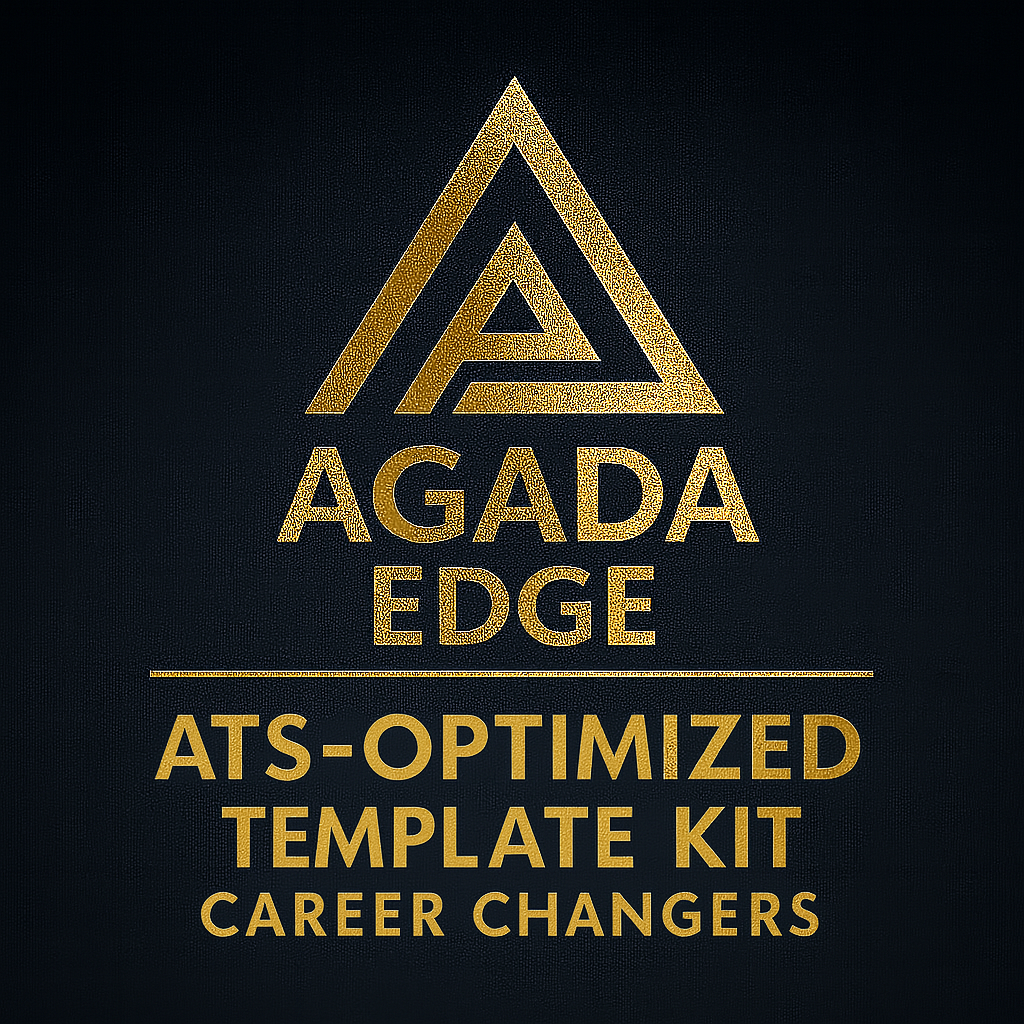 Image 1 of 1
Image 1 of 1


The Career Clarity Guide
Introduction to Career Clarity Guide
The AGADA Edge Career Clarity Guide is a flexible workbook designed to help individuals at various career stages find direction and confidence. It emphasizes the importance of understanding oneself to achieve meaningful work and success.
The guide is suitable for students, recent graduates, and early-career professionals.
It promotes an empathetic approach to career exploration.
The workbook includes practical exercises and personal reflection prompts.
Importance of Core Values
Identifying core values is crucial for achieving career fulfillment and authenticity. When career choices align with personal values, job satisfaction and motivation significantly increase.
Core values act as an internal compass for career decisions.
Examples of values include integrity, creativity, work-life balance, and financial security.
The exercise encourages narrowing down to top 3 core values for clarity.
Understanding Personality and Strengths
Recognizing personality traits and natural strengths aids in finding a suitable career fit. Self-awareness about work preferences can lead to increased engagement and performance.
Tools like the Myers-Briggs Type Indicator (MBTI) can provide insights into personality.
Reflecting on feedback and personal experiences helps identify strengths.
The exercise encourages listing top strengths and proud moments to uncover talents.
Skills and Interests Inventory
This section focuses on mapping skills and interests to potential career paths. By identifying what one is good at and passionate about, individuals can explore fulfilling career options.
Skills can be hard (technical) or soft (interpersonal).
Interests can range from broad topics to specific activities.
The exercise encourages brainstorming possible career paths based on skills and interests.
Open Journal for Reflection
The open journal section allows for personal reflection on feelings, patterns, and future visions. Writing can help clarify thoughts and emotions related to career aspirations.
Individuals are encouraged to explore feelings about career possibilities.
Identifying patterns can reveal common themes in values, strengths, and interests.
Envisioning an ideal future career can inspire actionable goals.
Creating an Action Plan
The final section focuses on translating insights into a concrete action plan. It emphasizes the importance of setting specific goals and identifying necessary skills to achieve them.
Define a clear career focus based on excitement and interest.
Identify skill gaps and outline steps to address them.
Break down action steps into manageable tasks with timelines for accountability.
Emphasizing Values and Flexibility
Maintaining focus on core values while pursuing career goals is essential. Flexibility and a positive mindset are crucial for navigating challenges and setbacks.
Values should guide decision-making in career choices.
Staying adaptable allows for growth and learning from experiences.
Celebrating small wins can boost motivation and confidence.
Introduction to Career Clarity Guide
The AGADA Edge Career Clarity Guide is a flexible workbook designed to help individuals at various career stages find direction and confidence. It emphasizes the importance of understanding oneself to achieve meaningful work and success.
The guide is suitable for students, recent graduates, and early-career professionals.
It promotes an empathetic approach to career exploration.
The workbook includes practical exercises and personal reflection prompts.
Importance of Core Values
Identifying core values is crucial for achieving career fulfillment and authenticity. When career choices align with personal values, job satisfaction and motivation significantly increase.
Core values act as an internal compass for career decisions.
Examples of values include integrity, creativity, work-life balance, and financial security.
The exercise encourages narrowing down to top 3 core values for clarity.
Understanding Personality and Strengths
Recognizing personality traits and natural strengths aids in finding a suitable career fit. Self-awareness about work preferences can lead to increased engagement and performance.
Tools like the Myers-Briggs Type Indicator (MBTI) can provide insights into personality.
Reflecting on feedback and personal experiences helps identify strengths.
The exercise encourages listing top strengths and proud moments to uncover talents.
Skills and Interests Inventory
This section focuses on mapping skills and interests to potential career paths. By identifying what one is good at and passionate about, individuals can explore fulfilling career options.
Skills can be hard (technical) or soft (interpersonal).
Interests can range from broad topics to specific activities.
The exercise encourages brainstorming possible career paths based on skills and interests.
Open Journal for Reflection
The open journal section allows for personal reflection on feelings, patterns, and future visions. Writing can help clarify thoughts and emotions related to career aspirations.
Individuals are encouraged to explore feelings about career possibilities.
Identifying patterns can reveal common themes in values, strengths, and interests.
Envisioning an ideal future career can inspire actionable goals.
Creating an Action Plan
The final section focuses on translating insights into a concrete action plan. It emphasizes the importance of setting specific goals and identifying necessary skills to achieve them.
Define a clear career focus based on excitement and interest.
Identify skill gaps and outline steps to address them.
Break down action steps into manageable tasks with timelines for accountability.
Emphasizing Values and Flexibility
Maintaining focus on core values while pursuing career goals is essential. Flexibility and a positive mindset are crucial for navigating challenges and setbacks.
Values should guide decision-making in career choices.
Staying adaptable allows for growth and learning from experiences.
Celebrating small wins can boost motivation and confidence.




